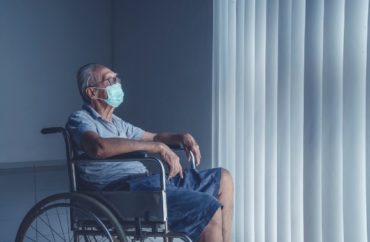
A pair of economists at the University of Geneva in Switzerland have conducted a study on the benefits of mask wearing in the prevention of COVID infection.
The economists found that there is almost no benefit for women in wearing masks and that the primary beneficiaries of the face coverings were men who were 90-years-old and older. The paper looked at the increased benefit from wearing the masks in public places such as on transportation and in super markets.
“However, our findings do not suggest that face masks are ineffective, we can only test for the additional effect of imposing compulsory mask wearing in public places on top of public transportation,” the researchers said, explaining the possible limits of their research.
University of Geneva Professor Giacomo de Giorgia, visiting doctoral student
“We find that the extension of compulsory mask wearing to public places has an heterogeneous impact on mortality, with small positive effects on male mortality entirely driven by older age-cohorts (90+),” the researchers said. “Finally, we show that adding contact tracing and stricter distancing to compulsory face-mask policy does not lead to better results in terms of mortality,” the authors wrote in their intro.
The trio of economists were able to study the effects of masking and lockdown measures by comparing how the 26 cantons, or states, within Switzerland implemented different measures over different time periods.
Women may not benefit from mask-wearing and may even be harmed by it. “For female mortality we find a negligible and imprecisely estimated increase,” the paper said.
Men had a lower mortality rate, with much of this decrease coming from the 90 and older age segment. The decrease was “driven by the oldest age-class, with a decrease of 17%” the paper said.
IMAGE: Creativa Images/Shutterstock.com
Like The College Fix on Facebook / Follow us on Twitter




Add to the Discussion